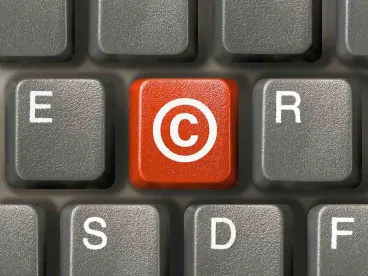The US Copyright Office Review Board (“Board”) rejected a request to register a computer-generated image of a landscape for copyright protection, explaining that a work must be created by a human being to obtain a copyright. Second Request for Reconsideration for Refusal to Register A Recent Entrance to Paradise (Copyright Review Board Feb. 14, 2022) (S. Perlmutter, Register of Copyrights; S. Wilson., Gen. Counsel; K. Isbell, Deputy Dir. of Policy).
In 2018, Steven Thaler filed an application to register a copyright in a work named “A Recent Entrance to Paradise.” Thaler listed as the author of the work the “Creative Machine,” a computer algorithm running on a machine. Thaler listed himself as a claimant and sought to register the work as a “work-for-hire” as the “owner” of the Creative Machine. The Board refused to register the work, finding that it lacked the necessary human authorship. Thaler requested reconsideration, arguing that the “human authorship requirement is unconstitutional and unsupported by either statute or case law.”
After reviewing the work a second time, the Board found that Thaler provided no evidence of sufficient creative input or intervention by a human author. The Board refused to abandon its longstanding interpretation of the Copyright Act, as well as Supreme Court and lower court precedent, that a work meets the requirements of copyright protection only if it is created by a human author. The Board concluded that “A Recent Entrance to Paradise” lacked the required human authorship and therefore affirmed refusal to register. Thaler filed for a second reconsideration.
The Board found that Thaler’s second request for consideration repeated the same arguments as his first request. Relying on the Compendium of US Copyright Office Practices (the Office’s practice manual), the Board found that Thaler provided neither evidence that the work was a product of human authorship nor any reason for the Board to depart from more than a century of copyright jurisprudence.
The Board explained that the Supreme Court of the United States, in interpreting the Copyright Act, has described a copyright as the exclusive right of a human and her own genius going back to 1884. The Board noted that the Supreme Court has repeatedly articulated the nexus between the human mind and creative expression as a prerequisite for copyright protection. The human authorship requirement is further supported by the lower courts. For example, in 1997 the US Court of Appeals for the Ninth Circuit held in Urantia Found. v. Kristen Maaherra that a book containing words “‘authored’ by non-human spiritual beings” can only gain copyright protection if there is “human selection and arrangement of the revelations.”
The Board further explained that federal agencies have followed the courts. In the 1970s, the National Commission on New Technological Uses of Copyrighted Works (CONTU) studied the creation of new works by machines. CONTU determined that the requirement of human authorship was sufficient to protect works created with the use of computers and that no amendment to copyright law was necessary. CONTU explained that “the eligibility of any work for protection by copyright depends not upon the device or devices used in its creation, but rather upon the presence of at least minimal human creative effort at the time the work is produced.”
The Board pointed to a more recent report issued by the US Patent and Trademark Office (PTO) in support of its position. The PTO sought public comment on whether “a work produced by an AI algorithm or process, without the involvement of a natural person . . . qualifies as a work of authorship under the Copyright Act.” Most commenters acknowledged that the current law does not permit a non-human to be an author and recommended that this remain the law.
The Board also dismissed Thaler’s argument that artificial intelligence can be an author under the work-for-hire doctrine. A computer cannot enter into a binding legal contract, and the work-for-hire doctrine only speaks to the identity of a work’s owner, not its author. As set forth in the Compendium of US Copyright Office Practices, “The term ‘authorship’ implies that, for a work to be copyrightable, it must owe its origin to a human being. Materials produced solely by nature, by plants, or by animals are not copyrightable.” Therefore, the Board affirmed the refusal to register the requested copyright.




 />i
/>i

